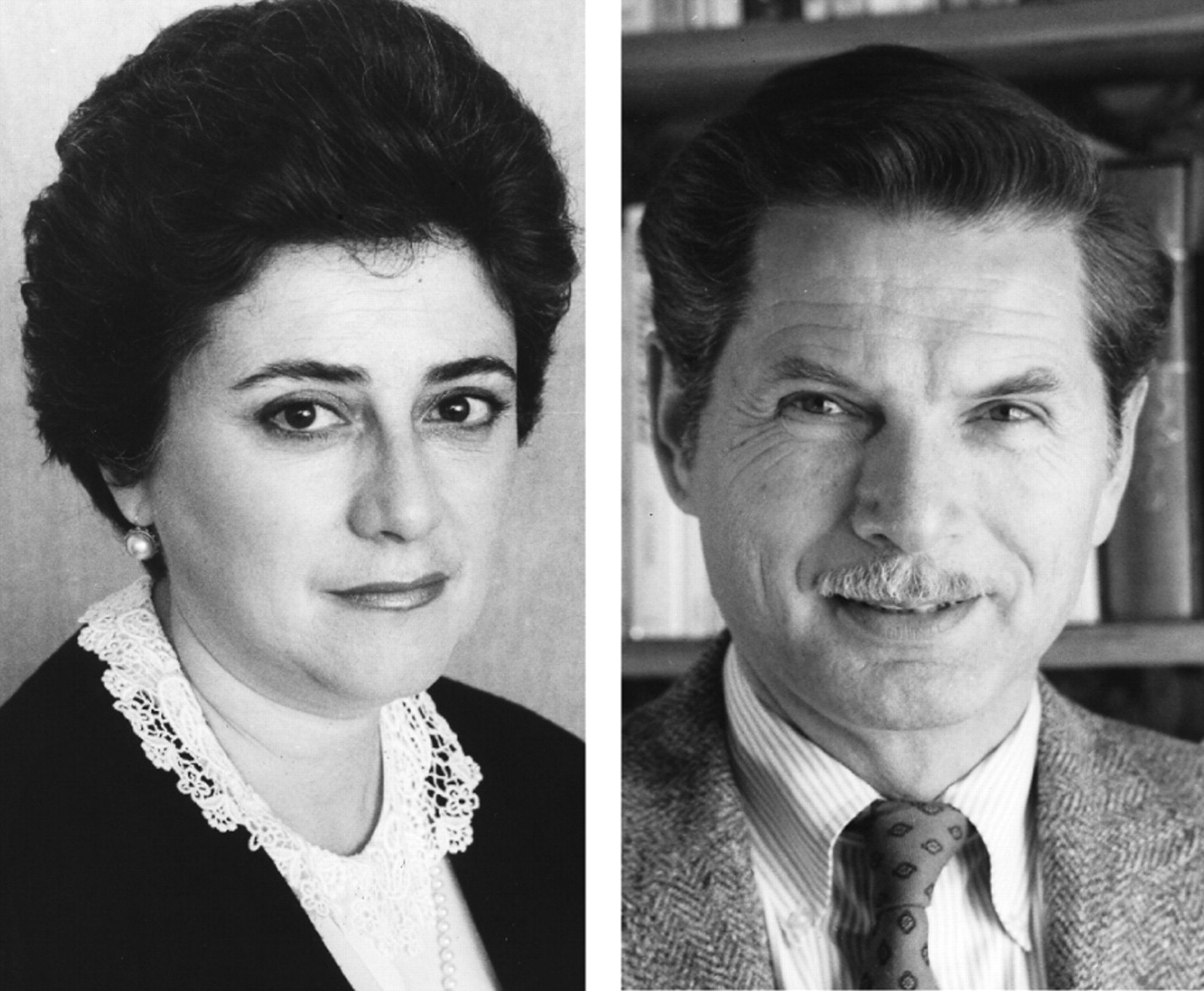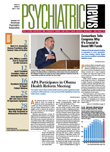It's not that Carol Nadelson, M.D., had long set her sights on becoming the first woman president of APA or becoming American Psychiatric Publishing Inc.'s first editor in chief a year or so later. But when in 1985 the challenge rose before her, she met it head on. She credits her preparedness to mentors, mostly male; her gradual climb up through the Association's rank and file; and ultimately her own personal and professional development.
“I was very much of a feminist, and much of my early activities in psychiatry focused on women's issues, including the mental health of women,” Nadelson told Psychiatric News.
Today the feminist spirit of the Harvard Medical School professor of psychiatry is alive and well. Since 1998 she has directed the Office of Women's Careers at Brigham and Women's Hospital, an affiliate of Harvard Medical School. And what she started a few decades ago continues to bear fruit: Nada Stotland, M.D., M.P.H., APA's current president, is the seventh woman to hold the office. Carol Bernstein, M.D., newly elected president-elect, is standing in the wings to become APA's eighth woman leader.
“It certainly opened up in APA the presence of women in leadership positions,” Nadelson said. “It changed that landscape. It also changed the attention that was paid to women's mental health.”
Women's leadership in psychiatry and its upward trajectory within APA is one aspect of “Breaking the Barriers,” a panel discussion to be presented by the Northern California Psychiatric Society at APA's 2009 annual meeting next month in San Francisco. The session will be held Monday, May 18, at 2 p.m. in Room 304, Esplanade Level, Moscone Center.
The session also will focus on the role that APA played between 1970 and 1992 in navigating through an often turbulent period of unprecedented social change related to human rights.
In addition to Nadelson, panelists include Lawrence Hartmann, M.D., the first openly gay president of APA, and Alfred Freedman, M.D., APA's president from 1972 to 1973.
“The'60s and'70s in the United States and the rest of the world were periods of enormous tension and struggle for reform with many successes and failures,” Freedman, chair and professor of psychiatry emeritus at New York Medical College, told Psychiatric News.
He continued, “One has only to recall the passage of the Civil Rights Act, the Voting Rights Act, and Medicare as positive steps for reform in contrast to the assassination of John F. Kennedy in 1963; Robert Kennedy and Martin Luther King in 1968 and the subsequent riots, looting, and fires that followed; and the numerous other events in that interval involving all areas, organizations, and groups in the United States. The American Psychiatric Association was not spared from the demands for change that swept through the country.”
Another achievement in this period was APA's removal of homosexuality as a mental disorder from the DSM.
The 1973 decision was an important decision, more important than we realized at the time,” said Hartmann, who was APA president for the 1991-1992 term.
It was so important, Freedman said, that a historian of the gay movement noted that the Washington Post deemed it the most important story of that day (December 15, the day it occurred) of the 20th century. The action came after years of persistent, scholarly agitation led by members of the gay and lesbian community within and outside of APA.
“Psychiatry's definition of homosexuality as an illness was a major obstacle to a segment of society seeking to be viewed as full human beings—as healthy, intelligent, and productive as heterosexuals,” said Hartmann, chair of APA's Council on Global Psychiatry and longtime assistant professor of psychiatry at Harvard, recently at Cambridge Hospital. Hartmann said the unwarranted definition further fueled and justified long-held societal prejudices, thereby harming all aspects of the lives of gay and lesbian individuals. Even so, that “biopsychosocial” achievement, he said, was not the end of the story; work to dismantle the ongoing range of entrenched legal, social, and cultural obstacles continues.
“There has been a lot of change, but then we have a way to go,” said Nadelson. For example, she noted that the percentage of psychiatry departments chaired by women is very low—estimated to be in the 11 percent range.
“We should be further ahead with all the women now in the field,” she said.
“Carol Nadelson's candidacy and election to the presidency of APA was enormously important,” APA President Nada Stotland, M.D., told Psychiatric News—so, too, Hartmann's presidency.
Beyond these and other “firsts,” this symposium also will address APA's continuing commitment to diversity in its membership and leadership. ▪

